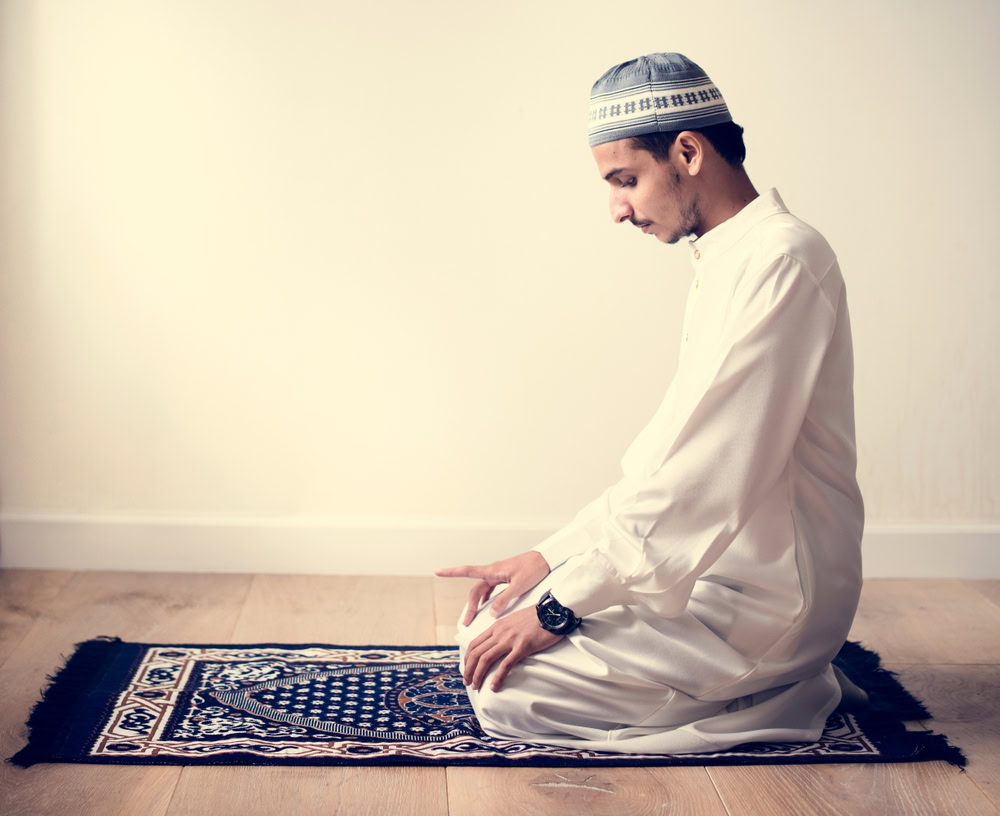What Is the Shafi‘i Ruling on Praying While Sitting Due to Illness?
Shafi'i Fiqh
Answered by Shaykh Dr. Muhammad Abu Bakr Badhib
Question
What is the Shafi‘i’s say on the validity of prayer performed while sitting due to illness or other legitimate excuses, and how should the prayer be adjusted?
Answer
In the name of Allah, and all praise is due to Allah, and blessings and peace be upon our master Muhammad, the Messenger of Allah, his Family, his Companions, and those who follow him.
Standing during the obligatory prayer, when one is able, is a fundamental pillar of the prayer, as established by the Shafi‘i School. This is based on the verse:
“And stand in true devotion to Allah.” [Quran, 2:238]
Additionally, the hadith of ‘Imran Ibn Husayn (Allah be pleased with him) states: “I had hemorrhoids, so I asked the Messenger of Allah (Allah bless him and give him peace) about prayer. He said: ‘Pray standing; if you cannot, then sitting; if you cannot, then on your side.’” [Bukhari]
The hadith of ‘Imran is evidence that a person who cannot stand during obligatory prayer is permitted to pray sitting or as they are able. This is further supported by the verse:
“(They are) those who remember Allah while standing, sitting, and lying on their sides…” [Quran, 3:191]
Conditions Permitting Sitting in Prayer
It is mentioned in “al-Bayan,” while explaining this verse: “‘Standing’ if they are able, ‘sitting’ if they cannot stand, and ‘lying on their sides’ if they cannot sit.” [‘Imrani, al-Bayan]
Another piece of evidence is the hadith of Anas: “The Messenger of Allah (Allah bless him and give him peace) rode a horse, fell, and injured his right side, so he prayed one of the prayers while sitting.” [Bukhari; Muslim]
Imam ‘Imrani also states that the incapacity permitting one to forgo standing includes:
- Permanent inability to stand.
- Being generally healthy but unable to stand without severe difficulty.
- Fear of significant harm due to standing.
Every act of worship that cannot be performed without severe difficulty permits substitution due to the hardship, such as a traveler in Ramadan who may break their fast despite being able to fast with difficulty. [‘Imrani, al-Bayan]
How to Perform Prayer While Sitting
He further elaborated on how a sick or incapacitated person should sit during prayer, stating:
“If this is established, how should they sit? There are two opinions:
- Sitting cross-legged: This is based on the narration of ‘Aisha, who reported: ‘The Prophet (Allah bless him and give him peace) prayed sitting cross-legged.’ [Nasa’i]
- Sitting in the iftirash position: This involves sitting with the left foot under the body and the right foot upright, which is a posture of worship, whereas sitting cross-legged is customary sitting.
The more accurate interpretation is that these two positions are recommended, not obligatory.
If the person sitting can bow and prostrate, they should do so. It is mentioned in “Al-Furu‘”: ‘One should bow by bending until it resembles the bowing of a standing person; if unable to prostrate on the ground due to illness affecting the forehead or back, they should bend as much as they can.’” [‘Imrani, al-Bayan]
Prayer for Those with Severe Physical Conditions
In the Shafi‘i texts, there are further details regarding standing for those who can, including the case of someone with a bent back who must stand, even if it resembles bowing. In “Al-Minhaj” with its commentary, “Tuhfat al-Muhtaj,” by Haytami, it is stated:
“If one cannot stand upright and appears as if bowing, due to old age or another reason, the correct view is that they must still stand in that position because it is close to upright standing. Additionally, they must bow further for the actual bowing if they are able, to distinguish between the two obligations.”
Voluntary Prayers (Nafl)
All that has been mentioned applies to obligatory prayers, where standing is required. As for voluntary prayers, standing is recommended but not obligatory, regardless of one’s ability. The Prophet (Allah bless him and give him peace) said:
“Whoever prays standing, it is better; whoever prays sitting receives half the reward of the standing; and whoever prays lying down receives half the reward of the one sitting.” [Bukhari]
This is a summary of the matter. We ask Allah to help us fulfill our duties and perform our worship as commanded, in a manner that pleases Him. Allah is the One who grants success and guides to the straight path.
[Shaykh] Dr. Muhammad Abu Bakr Badhib
Shaykh Dr. Muhammad Abu Bakr Badhib is a prominent Islamic scholar from Yemen. He was born in Shibam, Hadhramaut, in 1976. He received his degree in Shari‘a from Al-Ahqaf University, a master’s degree from the Islamic University of Beirut, and a PhD in Usul al-Din from Aligarh Muslim University (AMU).
He studied under great scholars such as Shaykh al-Habib Ahmad Mashhur al-Haddad, Shaykh Fadl Ba‘ fadl, Habib Salim al-Shatiri, Habib Ali Mashhur bin Hafeez, and others. He has served as the Director of Publications at Dar al-Fiqh, the former Deputy Director of Cultural Relations at Al-Ahqaf University, a former Assistant for Employee Affairs at Atiyah Iron Company, a researcher at the Sunna Center affiliated with the Dallah al-Baraka Foundation, and a researcher at Al-Furqan Foundation’s Makka al-Mukarrama and Madina al-Munawwara Encyclopedia branch.
Currently, he is a researcher at Al-Furqan Foundation’s Makka al-Mukarrama and Madina al-Munawwara Encyclopedia branch, teaches traditionally through the Ijaza system at Dar al-Fuqaha in Turkey, supervises the Arabic department at Nur al-Huda International Institute (SeekersGuidance), and is a member of the Board of Trustees of the Manuscript House in Istanbul.
His works include “The Efforts of Hadhramaut Jurists in Serving the Shafi‘i School,” “Contributions of Hadhramaut Scholars in Spreading Islam and its Sciences in India,” “Hada’iq al-Na‘im in Shafi‘i Fiqh,” in addition to verifying several books in Fiqh, history, the art of biographies, and Asanid (chains of narration).
